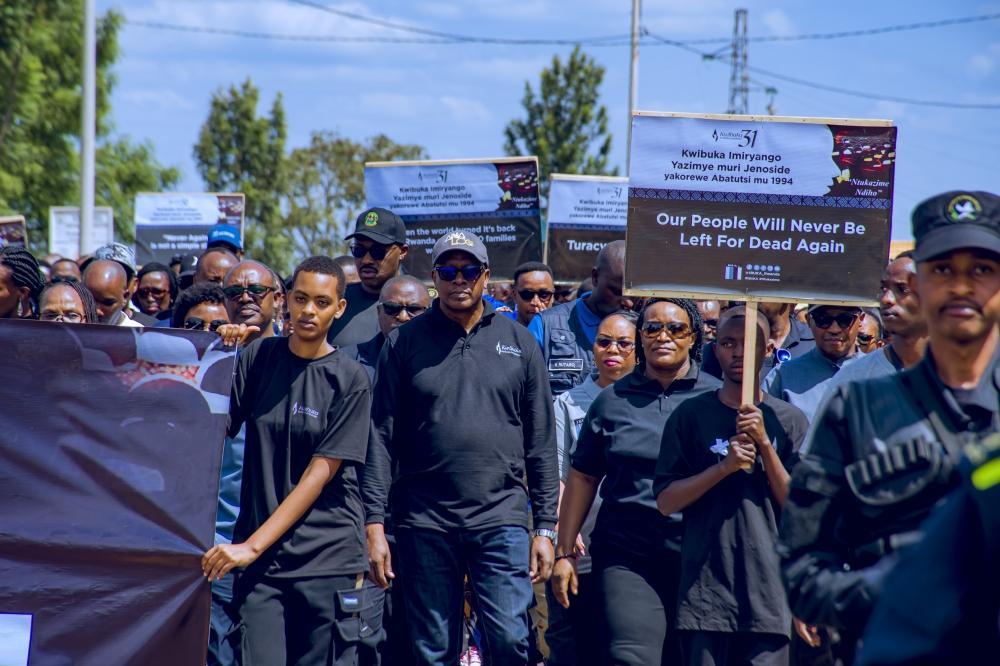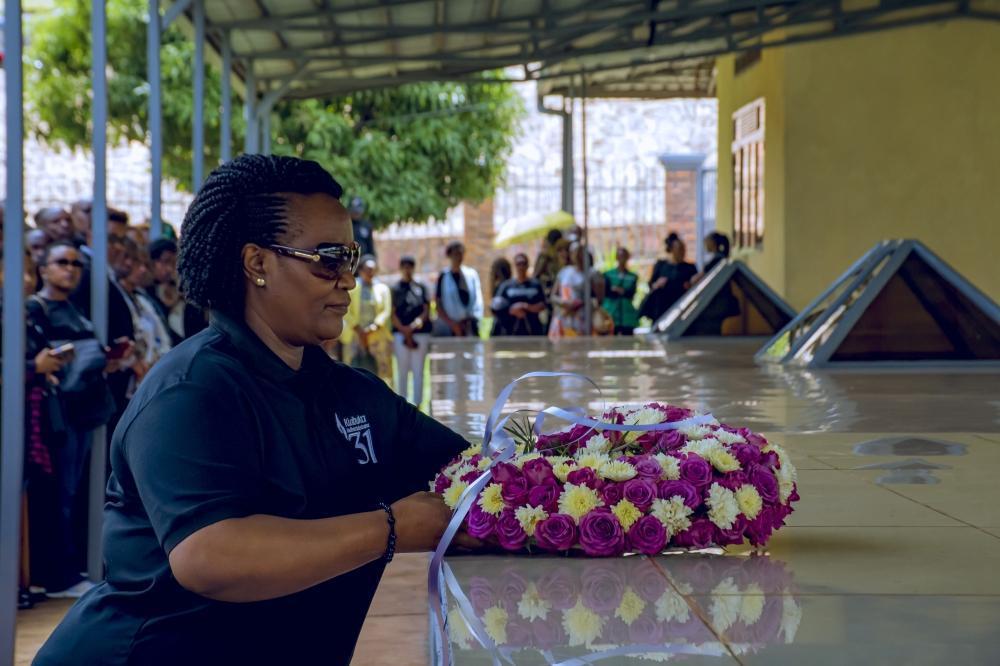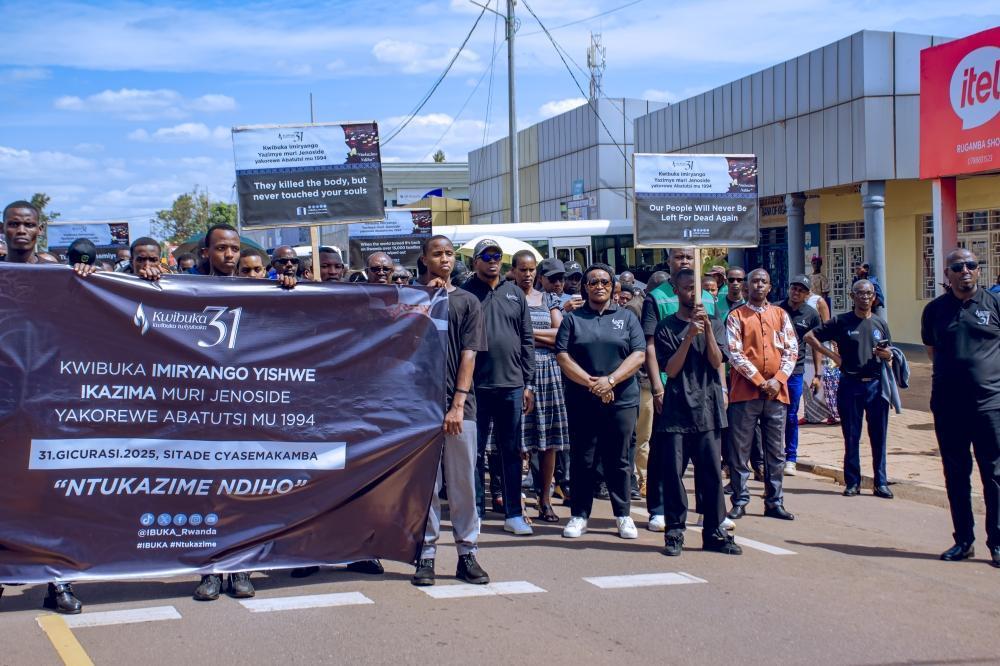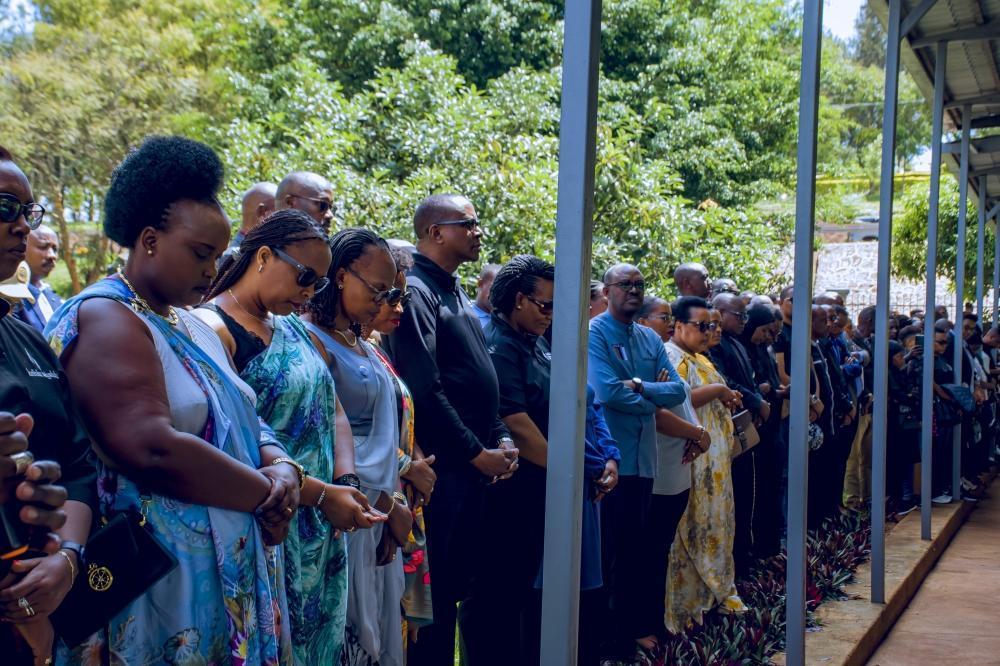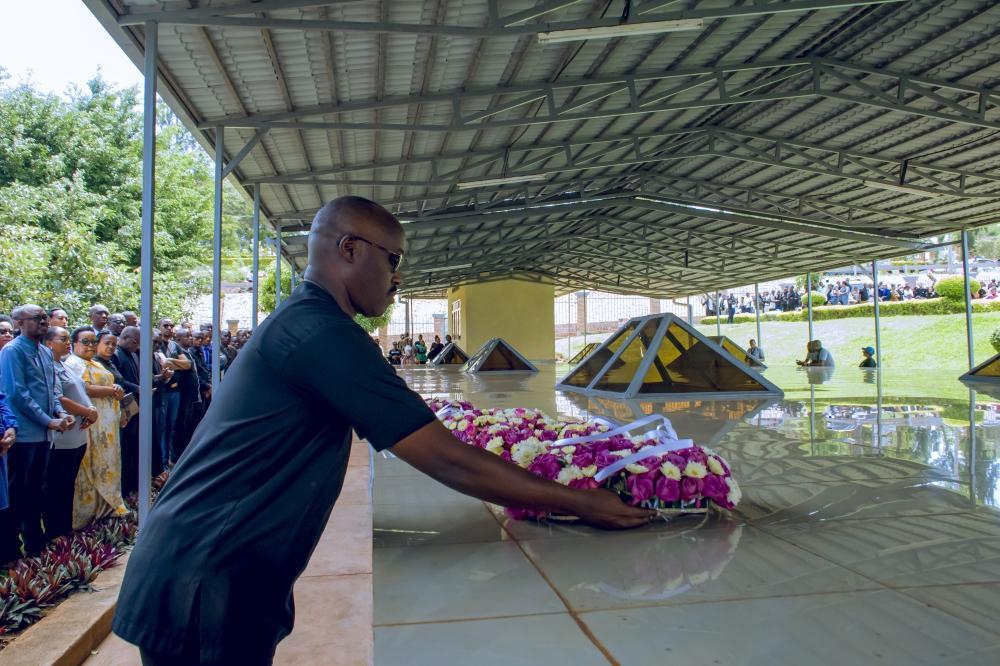Africa-Press – Rwanda. Ibuka, the umbrella organisation for survivors of the 1994 Genocide against the Tutsi, has announced plans to construct a national monument that will bear the names of families completely wiped out during the genocide.
The announcement was made during the Kwibuka 31 commemoration of wiped-out families, held on Saturday, May 31, in Ngoma District.
Christine Muhongayire, Vice President of IBUKA, said the initiative seeks to ensure that the names and stories of these families are never forgotten.
“As we remember the families wiped out during the 1994 Genocide against the Tutsi, IBUKA is working with Ministry of National Unity & Civic Engagement (MINUBUMWE) and other institutions on a project to preserve our history. We already have a list of the families that vanished and will continue adding names as more are identified,” Muhongayire said.
“A national monument inscribed with the names of the wiped-out families is just the first step. The next step is to write a book about these families — their history, how they lived, their values, and the lineages they came from. This will ensure that their memories and roots are not lost.”
She added that an electronic archive will also be established to safeguard the data.
Ngoma District Mayor Nathalie Niyonagira emphasised the importance of remembrance, especially for the younger generation.
“Over 700 families in Ngoma were exterminated during the genocide,” she said. “The killings were not random — they were part of a well-coordinated plan led by former leaders and soldiers. Our youth must learn from this history and build a future rooted in unity and responsibility.”
Historian Theophile Karasira, a former lecturer at Kibungo University, reinforced that the genocide was premeditated.
“Hatred against the Tutsi started long before 1994,” he said. “It was spread through schools, ID cards, and local administrative records. President Habyarimana even formed a team of 10 army commanders to oversee the genocide’s execution. In Ngoma, multiparty politics involving MRND, MDR-Parmehutu, and PL fueled the mobilisation for killings.”
Karasira credited the Rwandan Patriotic Front (RPF-Inkotanyi) for stopping the genocide in Ngoma.
“The liberation of Kibungo took two days of nonstop fighting,” he said. “Without the RPF’s commitment, even more families would have been lost. We must learn from their courage to build better lives.”
Anitha Kayirangwa, Secretary General of the Supreme Court, warned that genocide denial remains a persistent threat.
“Denial hasn’t disappeared. Some still distort the facts,” she said. “Genocide is not just about numbers — it’s about the planned destruction of a people. Those who deny the genocide know the truth but aim to minimise the horror. We must fight misinformation using every available tool — through the media, families, local leaders, and social media.”
According to IBUKA, the genocide completely wiped out 15,593 families across Rwanda, totaling 68,871 people.
Among the survivors is Liliose Mukantaganzwa, who was nine years old in 1994, who lived in Rukira, now part of Ngoma District. She shared her harrowing experience of witnessing the murder of a mother and her baby.
“The mother begged for her life,” she recalled. “They struck her with a machete and then hit her baby with the handle of the weapon. He cried — but no one helped.”
Mukantaganzwa lost both parents and all seven siblings. Only she and one sister survived.
“RPF-Inkotanyi soldiers rescued me while I was hiding in a banana plantation. A soldier grabbed my hand and assured me I was safe. They took me to Nyakarambi camp along with other displaced children.”
Thousands of Tutsi were killed in Ngoma District, formerly part of Kibungo Prefecture. This year’s Kwibuka 31 commemoration honored over 25,000 victims laid to rest at the Kibungo Genocide Memorial Site. Records indicate that over 700 families in the district were killed without leaving a single survivor.
Minister of Gender and Family Promotion Consolee Uwimana highlighted the role of families in national healing.
“The genocide was so horrific that many believed Rwanda wouldn’t survive,” she said. “When a family disappears, it weakens the entire country. I urge parents to raise children rooted in strong values. As a ministry, our mission is to help build resilient families that shape Rwanda’s future.”
In the Eastern Province alone, 2,246 families — totaling 9,979 people — were wiped out. Bugesera District recorded the highest toll, with 732 families (3,540 people) exterminated. Ngoma followed with 704 families (2,915 people), and Rwamagana reported 407 families (1,874 people). Kayonza, Gatsibo, and Nyagatare also recorded significant losses.
A wreath was laid at the Kibungo Genocide Memorial Site in honor of more than 25,000 victims buried there.
For More News And Analysis About Rwanda Follow Africa-Press

